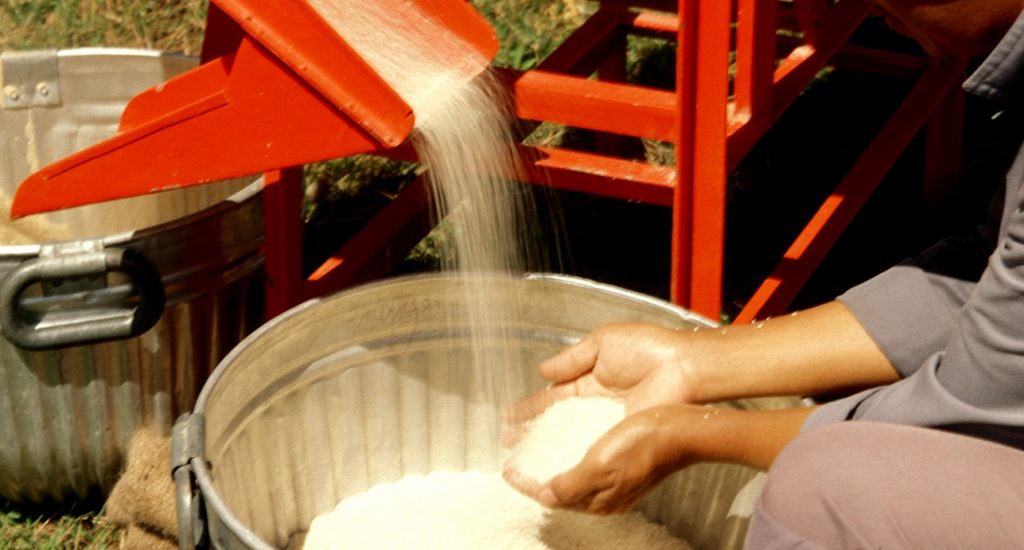- FG okays N60bn for rice subsidy
The sum of N60bn has been approved by the Federal Government as a subsidy for rice production in the country, the Minister of Agriculture, Chief Audu Ogbeh, said on Friday.
He spoke with State House correspondents after the National Food Security Council ended its meeting at the Presidential Villa.
President Muhammadu Buhari presided over the meeting.
The minister explained that the subsidy was meant to cut down prices.
Ogbe, who was flanked by the Kebbi State Governor, Atiku Bagudu, explained that the purpose of the subsidy was to help bring down the price of the commodity in the country.
He said, “There is a subsidy programme coming up. The government has approved some money, N60bn, to support the rice industry to bring down prices. But, we are going to handle it differently.
“We don’t want to get into petroleum subsidy problem. So, a committee is looking at it with the Ministry of Finance.
“We think that it is better for us to loan money to the millers, farmers and distributors at a very low-interest-rate so that the capital doesn’t disappear and they have cheaper credit to do their business that should impact on the price of rice in the market.
“When we are ready, we will let you know.”
On the use of NPK 151515, a brand of fertilizer, by farmers, Ogbeh stated that government’s intention to place a ban on it was real.
He said the reason was that the fertilizer brand did not add much value to crop production by the farmers.
The minister added, “We call for the ban of fertilizer NPK 151515, which has been used in the country for many years but recent research has revealed that it is not useful for any crop or any soil.
“Soils differ and so do crops. To believe there is one uniform fertilizer you can spread for every crop is a fallacy. And it is because we have done soil tests and change the formulation of fertilizers, local blenders, that some of the yields we are getting now are rising from two tonnes per hectare to five and six.
“So, the President is looking into that and how we can deal with it.”
Kebbi State Governor, Atiku Bagudu, who also addressed journalists, recalled a recent report by the United States Department of Agriculture, indicating that Nigeria was still a major importer of rice.
“We drew the attention of the Council to a report, which suggested that Nigeria had been importing rice to the tune of about three million tonnes.
“We informed the council that contact has been made with the US agency to tell us the basis for the report because it is not consistent with the report available to us.
“The only official importation in Nigeria is about 4,000 metric tonnes of rice.
Secondly, the biggest exporter of rice, Thailand, exported 1.1 million metric tonnes of rice to West Africa between January and October this year and India exported 402 million metric tonnes of rice to West Africa between January and the end of July this year.
“That is a total of 1.5 million metric tonnes.
“Even if all was smuggled into Nigeria, that was the total amount of importation one could attribute to Nigeria.”

 Naira4 weeks ago
Naira4 weeks ago
 News3 weeks ago
News3 weeks ago
 Education4 weeks ago
Education4 weeks ago
 Social Media4 weeks ago
Social Media4 weeks ago
 Economy4 weeks ago
Economy4 weeks ago
 Investment4 weeks ago
Investment4 weeks ago
 Dividends4 weeks ago
Dividends4 weeks ago
 Business3 weeks ago
Business3 weeks ago




























